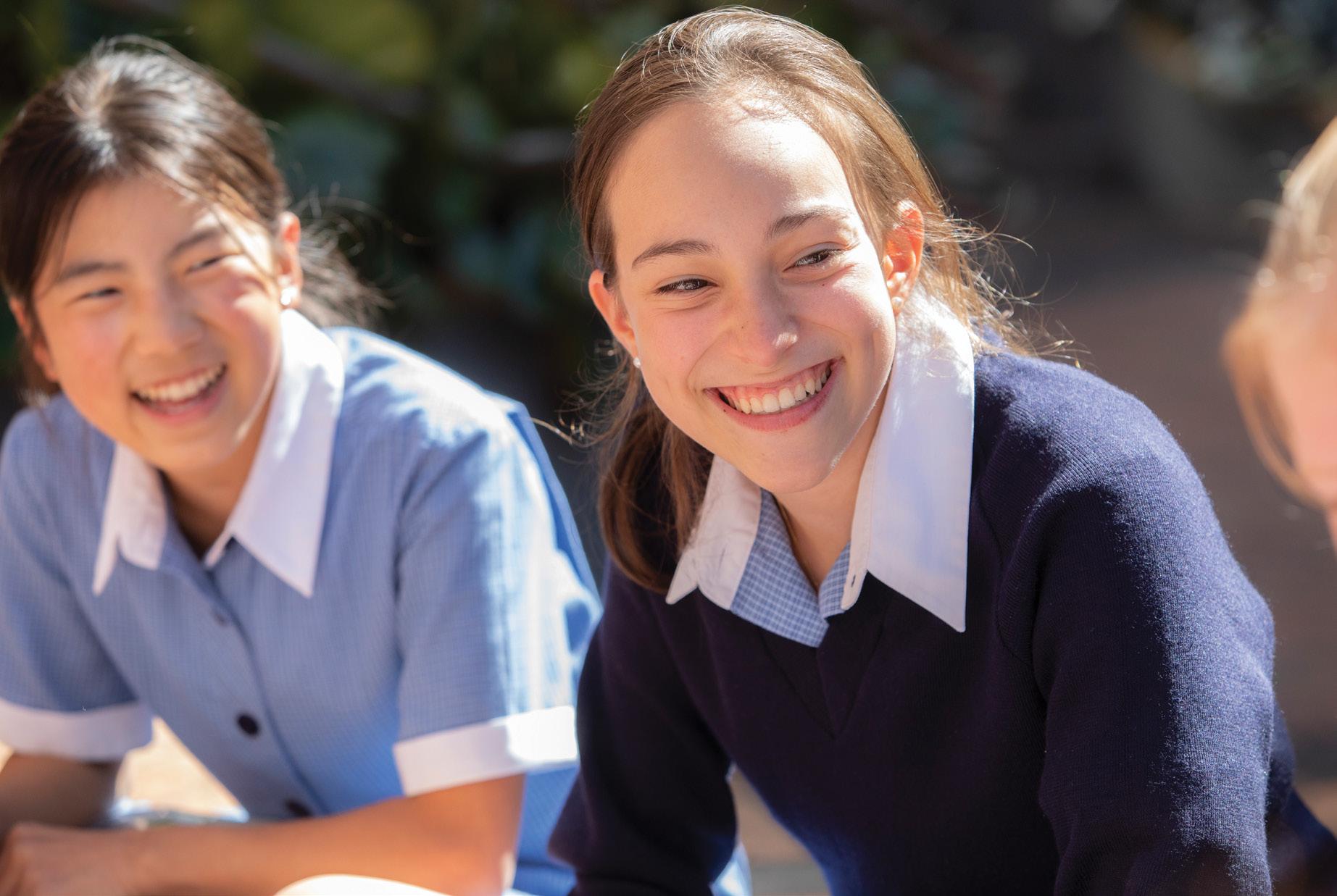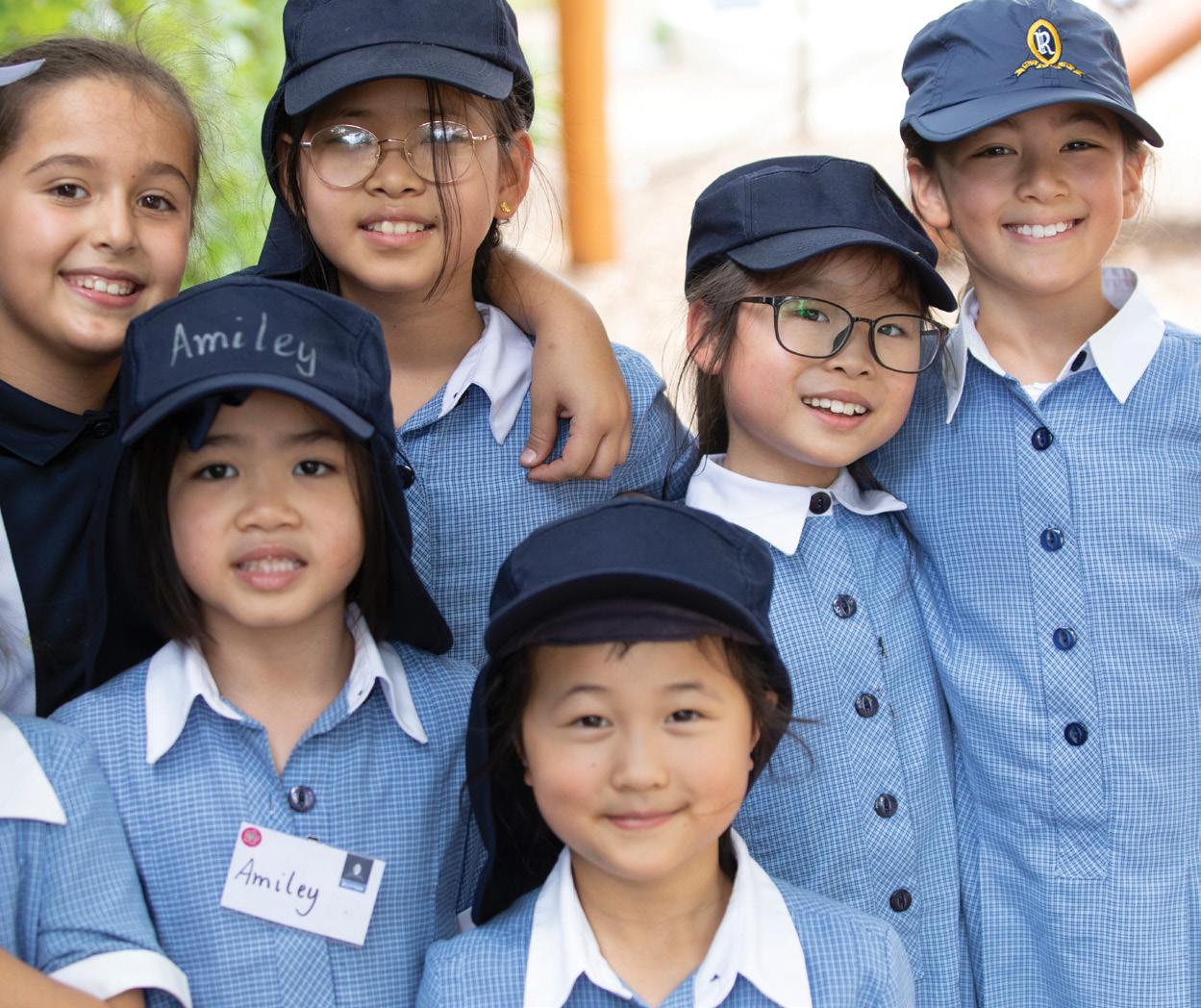
3 minute read
WELLBEING AT THE HEART
At the start of this year, the Ruyton community enthusiastically returned to Selbourne Road and embraced the opportunity to reconnect and reintroduce the routines and rituals that make Ruyton so special to students, staff and families. Yet there was a sense of cautious optimism for this new school year as we knew the world in which we lived had changed.2020 was to some extent a double edged sword. Whilst it presented us with complex challenges, it also offered us a unique opportunity to reflect on what really mattered and how we might move forward in providing optimum learning and wellbeing conditions for our students.
So in terms of the wellbeing of our students and community, what did we learn from 2020? Below are four key areas that we believe to be great lessons learned from last year that will continue to guide our journey throughout 2021. PARENT ENGAGEMENT
Advertisement
As the lines between home and school blurred last year, it reminded us all of the importance that these two domains of a student’s life are working and communicating in harmony. This home/school partnership grew stronger in 2020 and we saw the benefit of a shared wellbeing language emerging. Such examples came from our virtual Powerful Parenting Seminar Series. This Seminar Series proved to be an invaluable support for families on two levels. Firstly the increased understanding they gained on critical wellbeing topics, as well as the ability to seamlessly combine their attendance with equally important home commitments. Additionally, our Total Wellbeing Parent Conference involved a variety of wellbeing presentations that allowed parents to select age-appropriate sessions and topics of specific interest to them and in supporting their daughters. Based on the overwhelming positive feedback and exceptionally high attendance, such events will continue to be available virtually in 2021.
MENTORING IN THE SENIOR SCHOOL
The importance of maintaining strong connections and supportive relationships was certainly amplified in 2020 and it strengthened our commitment to the launching of a mentoring programme in the Senior School. The role of Mentors is to nurture and enhance the holistic growth and development of students within a ‘home base’ setting by creating a safe and inclusive environment where each student is valued, known and respected; interpersonal and personal skills are developed, and independence is nurtured. We are confident this new approach in supporting students will prove beneficial to both their holistic wellbeing and their academic pursuits.
AN EXPLICIT WELLBEING CURRICULUM IN THE JUNIOR SCHOOL

Whilst wellbeing has always taken pride of place within the Ruyton Junior School, prior to 2021 this often occured implicitly through daily interactions and classroom routines and rituals. The need for the development of an explicit wellbeing programme became evident in 2020 and work commenced on creating a programme with more intentionality in building specific wellbeing skills, concepts and resources for our students. The programme aims to translate current research and best practice in developmentally appropriate ways and in 2021, we hope that our Ruyton community will see that achieving wellbeing is more like learning an instrument. Something we dedicate time and effort to so that over time we build and practice the skills and concepts of wellbeing. Hence, this year in the Junior School we have allocated a dedicated wellbeing session each week. LEARNING DISPOSITIONS IN THE SENIOR SCHOOL

2020 also highlighted the need to provide an agile and flexible learning environment whilst at the same time recognising the importance of supporting the holistic wellbeing of students. Both endeavours, which underpin our Powerful Learning strategy, are co-dependent and the success experienced in one directly impacts the success of the other. We now are certain that if students are to be successful learners they need to be adaptable, independent and able to embrace challenges; all while learning within a supportive and safe environment. The importance of these learning dispositions was amplified when we moved to a Distance Learning model with our student data revealing that these dispositions were linked with students who self-reported that they were coping with the new challenges. External research also showed us that the most successful learners displayed strong emotional intelligence and in particular high levels of resilience and perseverance. It is for this reason that we will continue to focus on this in the Senior School.
It is said that many good things can emerge from adversity and we like to think that whilst the challenges were certainly there, we also had the unique opportunity to really reflect on what effective wellbeing support should like in the future.
Trish Hatzis Director of Wellbeing
Jahanna Parry Junior School Wellbeing Advisor










